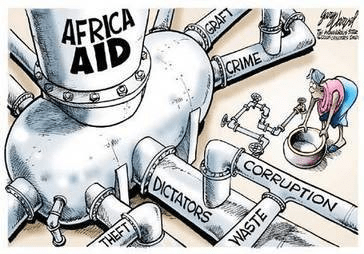Liberia’s journey through debt relief and development presents a complex case study of the challenges faced by developing nations. In 2010, the country experienced significant debt forgiveness, totaling around $4 billion USD, as a result of reaching the benchmarks set by the Heavily Indebted Poor Countries (HIPC) Initiative. This initiative, launched by the IMF and World Bank in 1996 and later supplemented by the Multilateral Debt Relief Initiative in 2005, aims to alleviate unsustainable debt burdens on the world’s poorest nations, allowing them to redirect resources towards achieving sustainable development goals. However, despite this substantial relief, Liberia’s debt has again climbed to approximately $2.6 billion USD by the end of 2023, underscoring the persistent difficulties in achieving lasting economic stability.
The incoming Boakai administration, having assumed power in January 2024, has developed an ambitious five-year National Development Plan, the ARREST Agenda for Inclusive Development (AAID). This plan, projected to cost around $8.4 billion USD and set for official launch in January 2025, aims to address the country’s development needs. However, the significant cost of the AAID presents a considerable challenge, given Liberia’s existing debt burden. The government will need to implement stringent measures to control spending, combat corruption, and foster diversified economic growth to generate the necessary resources for funding the plan. This must be accomplished within a global context marked by ongoing efforts to eradicate extreme poverty and address pandemics like Mpox.
While global poverty has seen a decline due to the economic growth of countries like India and China, extreme poverty remains a persistent challenge, particularly in Africa. With predictions indicating that Sub-Saharan Africa will house the majority of the world’s poor by 2030, Liberia, as Africa’s first independent republic, bears a significant responsibility to lead by example in tackling this issue. The COVID-19 pandemic exacerbated poverty worldwide, and although the global economy is projected to grow, new challenges like the Mpox pandemic further complicate the situation. Official Development Assistance (ODA) plays a critical role in supporting Least Developed Countries (LDCs) in meeting their citizens’ development needs, though further research is needed to fully understand the causal relationship between ODA and poverty reduction. The effectiveness and efficiency of ODA remain key concerns.
Fragile states like Liberia face significant obstacles to economic growth and sustainable development due to instability and conflict, often exacerbated by widespread poverty. Pandemics further amplify these challenges, disproportionately impacting the most vulnerable populations. These interconnected issues – pandemics, instability, fragility, and poverty – form a symbiotic relationship, requiring urgent and coordinated global action. The global response to COVID-19 and Mpox demonstrates the potential for collective action, and this collaborative approach is essential for addressing these intertwined challenges and fostering a return to a stable development trajectory. Debt forgiveness for poor countries is a crucial element in this process, particularly when existing debts have failed to contribute meaningfully to national or global development.
The effective management of debt by developing countries like Liberia is paramount. Concerns about the misuse of donor funds, with political elites often benefiting more than the intended recipients, necessitate a more strategic approach to aid provision by developed nations. Increased ODA, targeted towards pro-poor and inclusive growth initiatives, is vital for alleviating extreme poverty and fostering wealth creation in LDCs and Middle-Income Countries (MICs). However, reliance on ODA should not preclude developing nations from actively pursuing innovative approaches to economic growth. Transparency and accountability in the management of development assistance are crucial.
Donor countries can enhance the effectiveness of aid by directly involving their own companies and citizens in the implementation of infrastructure projects and economic development initiatives, mitigating the risk of corruption. This approach requires careful supervision by the recipient countries to ensure mutual accountability. Strengthening institutions, as emphasized by Sustainable Development Goal 16, is fundamental to achieving sustainable development and poverty alleviation. Developing nations must prioritize the establishment of inclusive and effective institutions that uphold the rule of law, protect property rights, ensure macroeconomic stability, provide essential public goods and services, and invest in key areas such as health, education, food security, peace, electricity, and infrastructure. Strategic targeting of development assistance towards economic growth corridors, focusing on the needs of the most vulnerable populations, is essential for maximizing impact. Ultimately, sustainable management of debt portfolios is a critical responsibility for developing nations like Liberia as they strive for economic progress and development.














